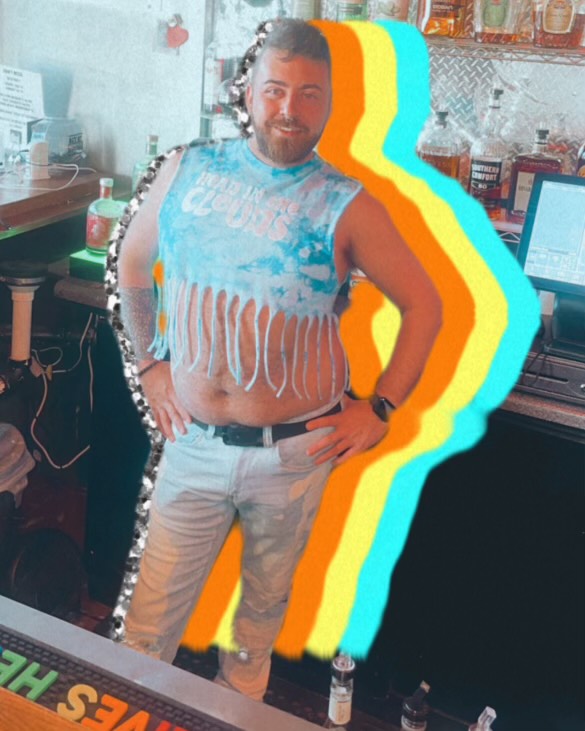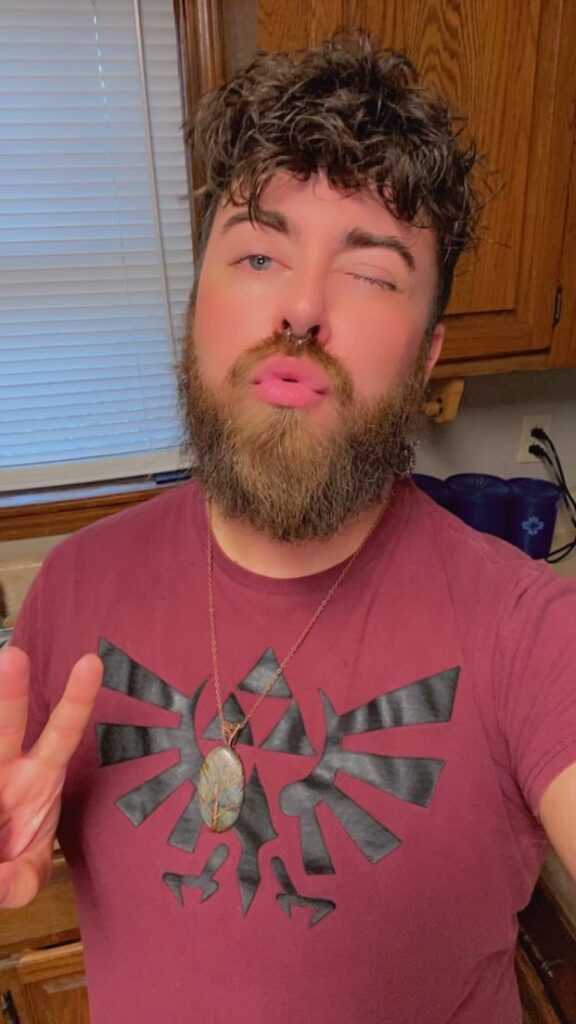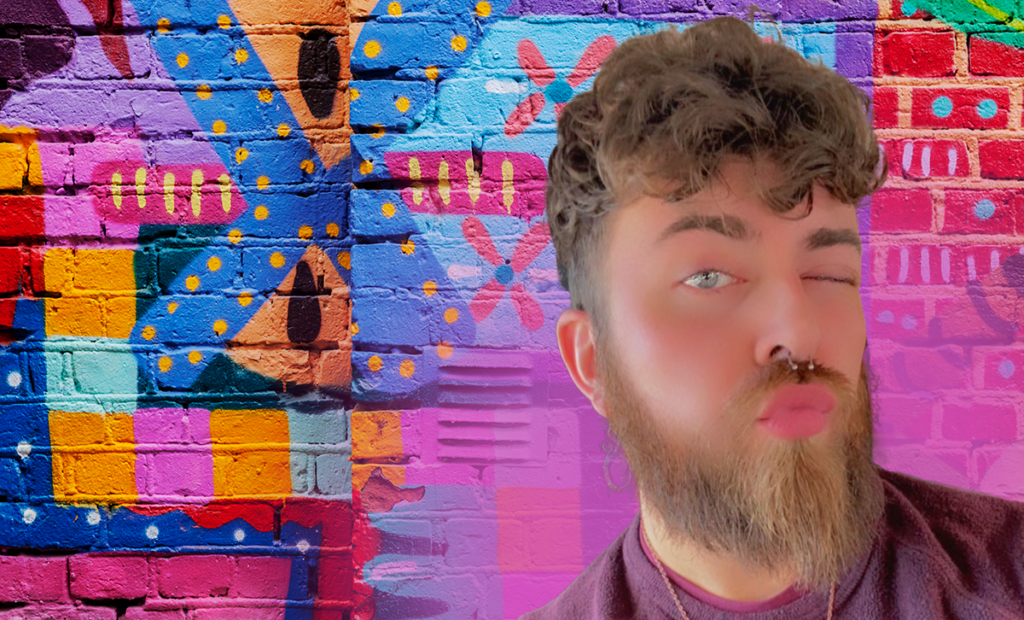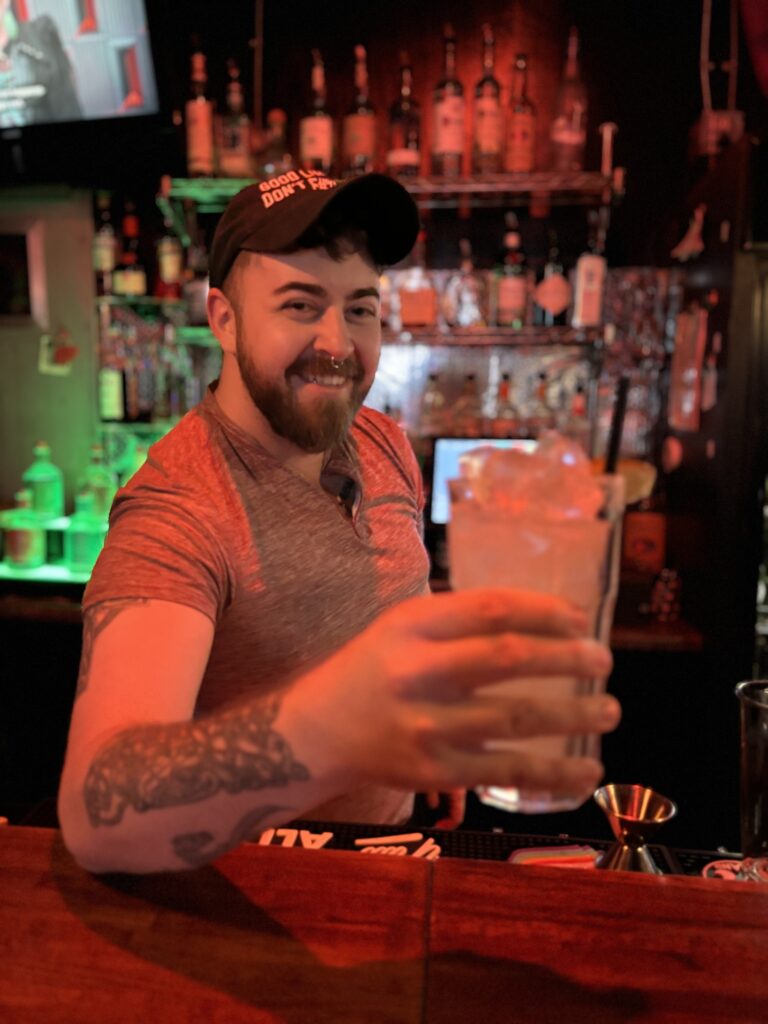“See, I had no idea that there was going to be, like, a really good thing that happened in my life after my diagnosis.”
James was diagnosed in June of 2023. When he spoke to us, he was still the same age as when he was diagnosed — 29 years old, only 9 months after learning he had HIV. However, he found the help he needed to not only address his diagnosis, but to thrive, thanks to incredible mental fortitude and a drive to help others with HIV.
James is using his growing platform to combat misinformation and end stigma once and for all. He is dedicated to creating positive change, countering many people’s perceptions of HIV.
A strong support network
While the first 24 hours were emotionally intense, luckily James knew several friends who were living with HIV. He was aware it’s not the same situation today as it had been and that medicine has advanced enough to lead a perfectly normal life.

“Time to put our big girl panties on and go get medicated”
When he first found out about his diagnosis, James’ practical knowledge about HIV and what to do next was limited. He’d found out about his diagnosis from a telephone service and went to the health department, asking why it would take one-and-a-half months to be seen by a clinician. He didn’t want to wait and risk his HIV progressing to AIDS.
Right place, right time
Realizing being seen would take too long, he called the Music City PrEP Clinic. Luckily, they’d just started offering antiretroviral therapy (ART), and he’d be able to start HIV medicine the same day! The care he received was exactly what he needed, with a sympathetic doctor whose partner had been living with HIV for the past 15 years. He’s helped James through the early stages of adjusting to his diagnosis.
9 months later, James is more than confident in his ability to stay on his ART medication. Now that he’s reached U=U (undetectable = untransmittable), he’s comfortable in his body and enjoying life to the fullest.
Hard-learned lessons
For anyone that learns they have HIV, James hopes they take the time to wrap their head around the diagnosis. Being sad at first is completely natural, and it takes a little time to turn it into something positive. “Because you, yourself, are now positive!” he says. When ready to move forward, James wants people to feel confident, empowered, and all-around great about themselves. Stigma shouldn’t stop someone from being a light in the world for all to see.
Finding a community
James learned about Positive Peers from the team at Music City PrEP Clinic. He quickly realized the benefits of using the medication reminders to get better at medication adherence, and found comfort in chatting with other individuals going through the same experience.
Since showing his case manager the end-user aspects of the app, more and more Music City PrEP Clinic patients have joined the Positive Peers community.
The stigma needs to stop
“I really think that the only reason why many of us have such adverse reactions to finding out about HIV is simply due to the stigma that's put behind it to begin with.”
James knows that the only reason he had an initially strong reaction to his diagnosis was because of the misinformation about HIV that still impact people’s perceptions today. “If people felt as negatively about diabetes as they do HIV, everyone would be terrified of sugar”, he says.
“The best piece of advice I got was probably when I spoke on a panel about stigma for World AIDS Day.” Another person with HIV taught him that it’s all about mind over matter—stigma can’t touch you if you don’t let it. James has taken that advice to heart, focusing on his goals and keeping his mind strong. For him, it’s about staying tuned into a message for positive change, rather than dwelling on what other people say or think.
Make a change
James believes that change needs to come from the top-down. Stigma and sexual health education are topics that need to be addressed at the legislative level. One great way to do this is by contacting representatives and senators, to correct the misinformation and lack of information about HIV.
His belief comes from firsthand experiences. When James was 13, he raised his hand during public health class to ask how he as an openly gay person could keep himself safe. He was sent to the principal’s office for disrupting the class. James still sees the same misinformation and judgment, alive and well, through lawsuits filed in Tennessee around disclosure and other topics to do with HIV.

Taking action
Today, James openly discusses HIV through public events and speaking panels. “The most important thing to me in my life right now is, honestly, working in the HIV field.” He’s become passionate about countering misinformation and stigma.
Moving forward, James wants to be an HIV spokesperson, attending conferences as a keynote speaker. He knows it’s a hard road ahead, but making a change is important. “It’ll be uncomfortable at first, but in the long run, there will be more benefits of, or more pros than cons, as to speaking up and getting involved—because things only change when we have people and numbers.”

